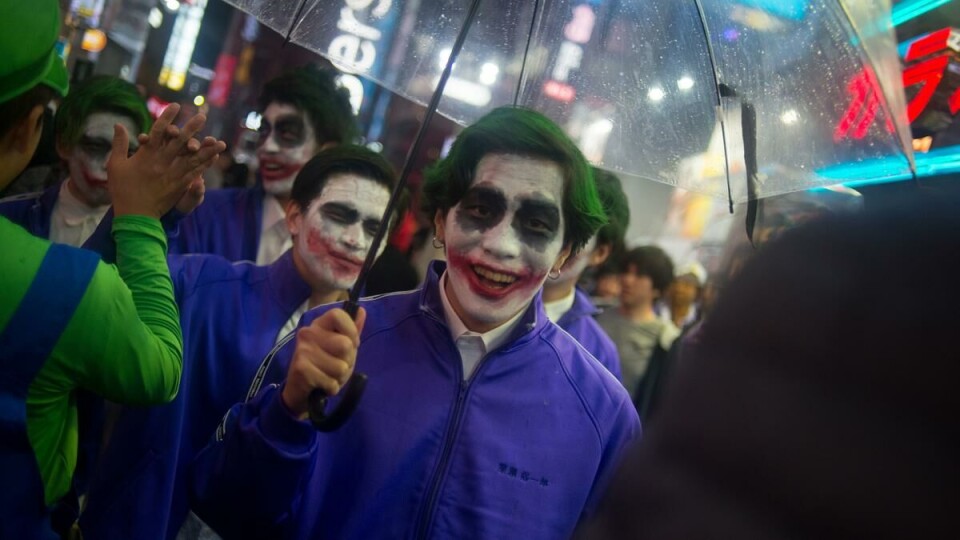
Always a foreigner
After three weeks in Japan I couldn’t shake the feeling that I will never fit in here.
It’s raining in Tokyo, but only small drops of water meet the asphalt, shooting through the gaps between hundreds of umbrellas pressing against each other in the streets. Shibuya – the central neighborhood known for having the world’s busiest intersection – is especially alive tonight. It’s the weekend before Halloween, and people dressed as minions, superheroes, witches, and zombies are on every corner. The unnaturally sharp light from advertisements all around me shines on people waiting.
It’s not hard to point out the Western tourists who have come to Shibuya to experience a Japanese Halloween, but there aren’t many of them. Most people in the capital city are Japanese – but then again, this society is more homogenous than others. At a Halloween party beforehand, I talked to a Canadian artist dressed as some kind of zombie. He’s married to a Japanese woman, speaks the language fluently, and has lived here for over eight years. «I’ll still always be a foreigner» he told me. He smiled with resignation, put out his cigarette, and went inside to get more beer.
I can understand how this white, above-average-height Canadian living in an Asian country feels. The first Cantonese word I learned when I lived in Hong Kong last year was «gweilo,» which means «foreigner.» You’re always the «other.» But while being different might not raise eyebrows in other societies, in Japan it means you probably don’t know the culture or language. «Gweilo» has a counterpart in Japanese: «gaijin,» meaning «alien.»
Believe it or not, Japanese authorities push stricter immigration policies than Sylvi Listhaug. Between 2011 and 2016, there were 69 Syrian refugees who applied for residence here. The last two years, on a daily basis, we’ve seen countless pictures of sinking inflatable boats, overfilled with people; bombed out houses in Raqqa; reports of people in extreme danger.
Last year, seven Syrians received permission to live in Japan. Seven.
The refugee crisis might not be getting as much coverage as it used to, but it’s far from over. Millions of people are still fleeing, and there will most likely be more. In 2016 a total of 28 people received residence permits in Japan. Almost 11,000 applied, but the rejection rate is 99 percent.
The newly-elected Japanese Prime Minister Shinzo Abe said in 2015 that Japan has to take care of its own people before taking care of refugees. This was after receiving harsh critique from the UN. I don’t usually go on vacation to think about whether I could move somewhere, but I don’t think I could ever settle in Japan. In my eyes, Japan is first and foremost a country for Japanese people. It makes you wonder why one of the most developed countries in the world doesn’t want to cultivate diversity.
Japanese women talk over each other in the competing advertisements in Shibuya, fighting for the attention of the everyone waiting down below. The last cars drive by, directed by traffic constables with lights. The pedestrian light turns green. Hundreds of people walk toward each other, merging in seconds.
































